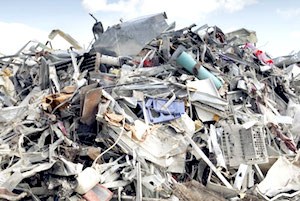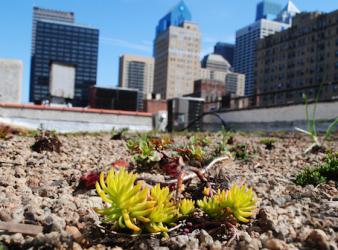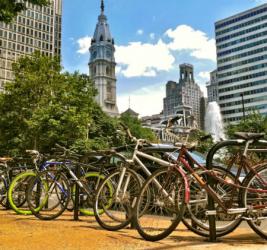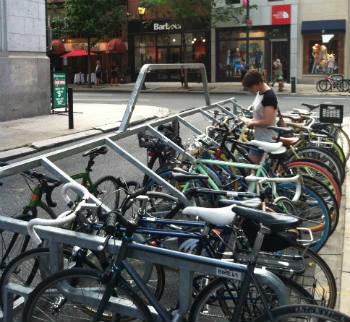Philly is certainly experiencing a construction boom, but with all those new properties and rehabs comes construction waste—and lots of it. One company and a rotating cast of artists are working to turn constructing “waste” into something much more.
Neighborhoods in every corner of the city are seeing new housing stock go up, and countless existing homes being rehabbed. From East Kensington to North Philadelphia to South Philly, new development projects can be spotted almost weekly. The resulting construction waste going to landfills is a downside to this real estate boom—or at least it was until Revolution Recovery and Recycled Artist in Residency (RAIR) came along.
Revolution Recovery, tucked away in Northeast Philadelphia, makes it exceptionally easy to not only get rid of construction materials, but to recycle them—leaving no excuse for disposing of such materials improperly. Serving everyone from the individual rehabber to larger-scale construction sites, Revolution Recovery recycles the gamut of typical builder materials: wood, drywall, metal, rubble, plastics, carpet, and more.
Where do the artists come in? Artists, and sculptors in particular, use some of the same materials that turn up at Revolution Recovery: Tyvek, glass, drywall, wood, etc. They had already been showing up at the recycling center in search of these materials, when local artist Billy Dufala told owners Avi Golen and Jon Wybar about a formal program for artists at San Francisco waste-management company, Recology.

Golen and Wybar were sold on the idea, and Recycled Artist in Residency (RAIR) was born. Applications are accepted for standard residencies, 3 months maximum, or “Biggie Shorties,” large-scale projects conducted in a short time frame—36 hours, to be exact. Those 36 hours fall during the time the dump isn’t in use over the weekend, and must be photographed and demolished before Monday morning, when it rejoins the recycling stream.
Imagine if all construction waste in Philadelphia was disposed of responsibly! Not only would it benefit the environment, but now the arts as well. A financial incentive from the City to promote the recycling of construction waste could go a long way in achieving this goal.
RAIR is accepting 2015 applicants until December 7th, details here.
Opening image courtesy of Gridphilly.com, “Flying Sails” and Christmas card image courtesy of Philly.com.




